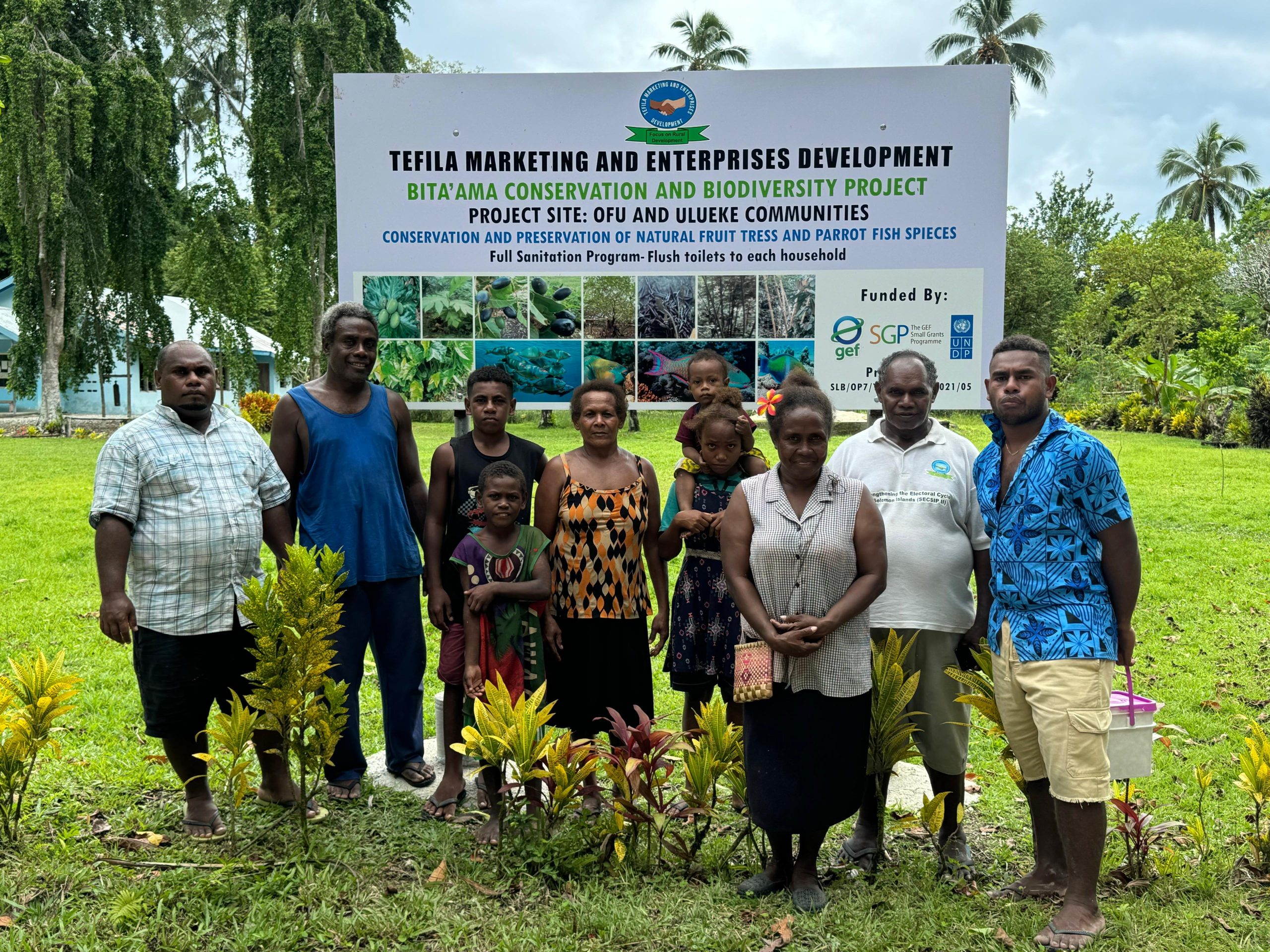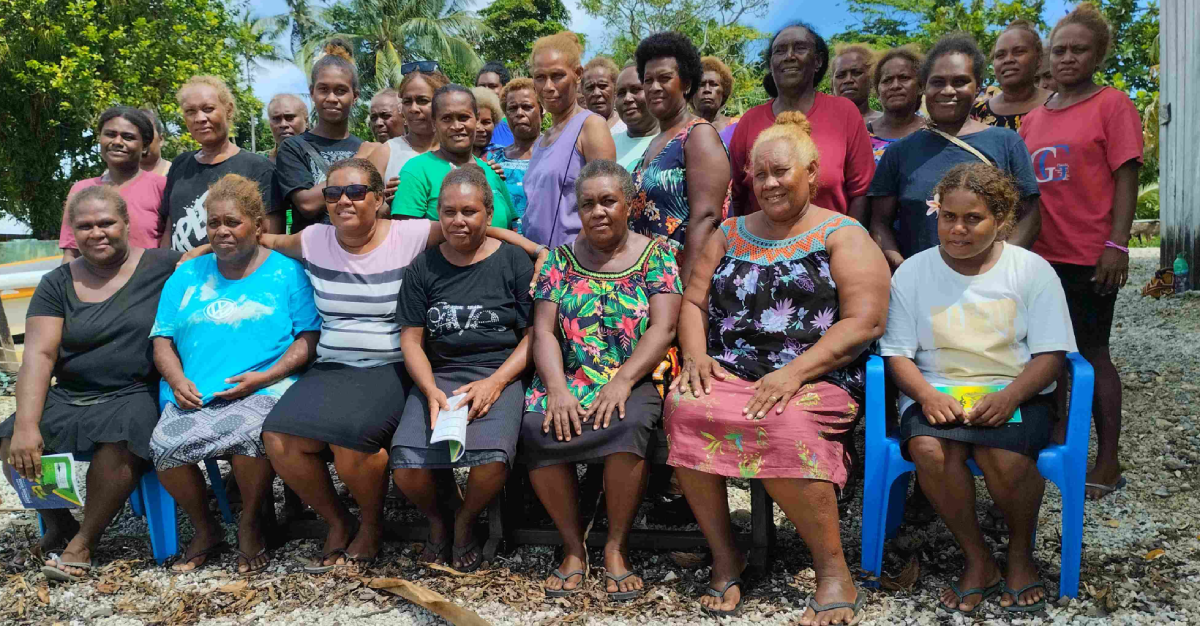In the heart of North Malaita, the community of Ofu in the Bita’ama region are setting a powerful example for Solomon Islands, the Pacific region and the world on biodiversity conservation through the successful implementation of a community-led project: the Bita’ama Conservation of Biodiversity Project. The initiative has not only revitalized the natural environment of their bay but also strengthened cultural traditions, improved sanitation, and created new economic opportunities for local people.
At its core, the project is about reconnecting the community with the land and sea that sustain them—restoring biodiversity, honoring traditional knowledge, and investing in the future. From replanting indigenous trees like ngali-nut, breadfruit, and bamboo to preserving vital marine life such as the parrot fish, the project reflects a holistic approach to conservation that is rooted in culture, livelihood, and sustainability.
“We have always lived off the land and sea, but now we understand better how to protect them for future generations,” said Lovelyn Sauna, Community Coordinator of the project. “Our people now value not only the environment but the deep cultural traditions connected to the our harvest like the ngali-nut and bread fruit, our shores, and our reefs. This project has awakened that awareness.”
Key Achievements of the Project Include:
- Reforestation of local and indigenous species, including ngali-nut, breadfruit, bamboo, mangroves, and swamp taro.
- Conservation of marine biodiversity, particularly the parrot fish, an essential species for reef health.
- Preservation and clean-up of the river, safeguarding its freshwater biodiversity.
- Establishment of a Demonstration Site in Ofu and a Ngali-nut Processing and Preservation House, now emerging as an economic engine to eventually evolve into tourism attractions.
- In addition, there are plans to install 30 flush toilets across 30 households of which some are already being installed, significantly improving sanitation and public health.
Throughout implementation, the project actively engaged local stakeholders including church groups, tribal landowners, women and youth groups, and other members of the community. The collaboration fostered not only a sense of ownership but also transferred technical skills and conservation knowledge to empower local stewardship.

As a result, community members now recognize the economic value of their traditional foods and the importance of managing marine protected areas and freshwater ecosystems in a sustainable manner. The revival of ngali-nut processing, once central to traditional ceremonies and community feasting, has also reinforced cultural pride and intergenerational knowledge.
Looking ahead, the community is taking steps to ensure the sustainability of the project. Plans are underway to establish a dedicated project management committee or delegate oversight to the existing Tribal Land Committee, ensuring long-term protection and growth of this community-led initiative.
The Bita’ama Biodiversity Conservation Project is more than a conservation effort—it is a movement led by the people of this community to protect their environment, preserve their culture, and build a sustainable future.
The Small Grants Programme (SGP) is a corporate programme of the Global Environment Facility (GEF) implemented by the United Nations Development Programme (UNDP) since 1992.




